#history stuff
Text
[“Poverty is embarrassing, shame inducing. Misery (misère), the French sociologist Eugène Buret once remarked, “is poverty felt morally.”
You feel it in the degradation rituals of the welfare office, where you are made to wait half a day for a ten-minute appointment with a caseworker who seems annoyed you showed up. You feel it when you go home to an apartment with cracked windows and cupboards full of cockroaches, an infestation the landlord blames on you. You feel it in how effortlessly poor people are omitted from movies and television shows and popular music and children’s books, erasures reminding you of your own irrelevance to wider society. You may begin to believe, in the quieter moments, the lies told about you. You avoid public places—parks, beaches, shopping districts, sporting arenas—knowing they weren’t built for you.
Poverty might consume your life, but it’s rarely embraced as an identity. It’s more socially acceptable today to disclose a mental illness than to tell someone you’re broke. When politicians propose antipoverty legislation, they say it will help “the middle class.” When social movement organizers mobilize for higher wages or housing justice, they announce that they are fighting on behalf of “working people” or “families” or “tenants” or “the many.” When the poor take to the streets, it’s usually not under the banner of poverty. There is no flag for poor rights, after all.
Poverty is diminished life and personhood. It changes how you think and prevents you from realizing your full potential. It shrinks the mental energy you can dedicate to decisions, forcing you to focus on the latest stressor—an overdue gas bill, a lost job—at the expense of everything else. When someone is shot dead, the children who live on that block perform much worse on cognitive tests in the days following the murder. The violence captures their minds. Time passes, and the effect fades until someone else is dropped.
Poverty can cause anyone to make decisions that look ill-advised and even downright stupid to those of us unbothered by scarcity. Have you ever sat in a hospital waiting room, watching the clock and praying for good news? You are there, locked on the present emergency, next to which all other concerns and responsibilities feel (and are) trivial. That experience is something like living in poverty. Behavioral scientists Sendhil Mullainathan and Eldar Shafir call this “the bandwidth tax.” “Being poor,” they write, “reduces a person’s cognitive capacity more than going a full night without sleep.” When we are preoccupied by poverty, “we have less mind to give to the rest of life.” Poverty does not just deprive people of security and comfort; it siphons off their brainpower, too.”]
matthew desmond, from poverty: by america, 2023
2K notes
·
View notes
Text
It’s interesting to me to see how many people have been saying they feel like [character’s] death was too sudden or too early, and while I agree from a writing standpoint we didn’t exactly have a lot of time with him and they COULD have framed the show differently to give us more, I also think it’s sort of The Point that his death is sudden and kind of out of nowhere.
The air war was incredibly fucking brutal. I’m not saying it was more or less so than what the BOB or TP guys went through because they’re all awful, but it’s a well accepted part of the WWII experience that anything to do with flying planes might have seemed glamorous and cool but was actually terrifying and had a sort of uniquely horrible flavor to it when it came to facing the death of your friends.
(And this isn’t even getting into the stuff happening on the ground when cities became viable targets, but that’s for a different post.)
When Hoobler dies, the guys are there, they see it happen, they can try to help him, and then they know after a point that he’s dying. They can sit with the body afterward and take his stuff to send back to his family. Even in the more fast paced deaths like Rob Oswalt, Sledge and the others can look at his body and have a moment - however brief! - to say goodbye. There’s often no mystery of what happened, you’ve seen the wounds and know they’re dead. And you also HAVE to push it down because you’re being shot at and need to keep yourself alive.
All of that is real important in the grief/mourning process. Guys in the 100th usually didn’t have that unless someone on your bomber died. You’d go up with your friends, you’d see their planes get hit, there’s nothing you can do besides watch for chutes and hope they survive to be taken prisoner. And then you come back, and your friends are gone, there’s no body to bury or sit with or touch. Their stuff is all still in the barracks like nothing happened. Sometimes you’re not even immediately sure if they are dead or not! You don’t know who those chutes belonged to, or if they made it safely to the ground instead of dying on impact or immediately being caught by the Germans and executed. But your friends are gone and you were powerless to do anything to help them.
And then you get to do it all over again knowing it’s going to happen to other friends or to you and there’s basically nothing you can do about it. How do you cope with that? What does it do to you to feel like your friends just literally vanished into thin air even though the last time you saw them, they were healthy and young and alive? And then new guys replace them, and you have to decide if you want to make friends with them or close yourself off, because these guys are going to die too.
(Oh, and if a member of your crew got badly wounded? You could have HOURS before you got back to base, and you have some first aid training but you’re not a surgeon, you don’t have plasma or whole blood to give a guy to help keep him alive until you make it back. So another horrible traumatic thing you get to deal with. Wounds that could’ve been treatable if you’d been at Carentan or Guadalcanal could be fatal.)
I’m not saying this show is a masterpiece in storytelling by any means, but… You’re supposed to feel shocked and angry and robbed of the chance to get to know these guys? Because that’s literally how their friends felt. It’s a point Miller makes a lot in the book, and a really vital part to understanding why being in the AAF (or other air forces) was such a meat grinder physically and psychologically for these guys.
155 notes
·
View notes
Text



Fun fact: The pronunciation of American English is closer to the pronunciation in William Shakespeare's time (1564-1616) than in British English. Today's American accent is more closely related to what Shakespeare heard while he wrote. People generally assume that Shakespeare's English is related to British English, but in Early Modern English the letter "r" is still pronounced. During the 18th century the "r" was dropped from pronunciation when it was the last syllable of a word in southern British English. American English froze in how we pronounce letters, which is why we sound more like Shakespeare than British English.
#histoire#history#history in the making#history is awesome#history of science#history stuff#historyposting#today in history#history lesson#connecticut#history lover#william shakespeare
179 notes
·
View notes
Text
Precisely because the path of historical maximalism promises everything, it can ultimately offer nothing: "a moral race to the bottom" that is inevitably a path towards death. Acknowledgment of the pluripotent strands of history can be the means through which we resist maximalism and extremity, resist the siren's call of boundless violence, and instead reform around a pragmatic humanism whose very lack of complete self-assuredness serves
as a bulwark against our instinct to rationalize atrocity.
I've long found David Schraub (@schraubd) to be a reliable source of more thoughtful and reasonable commentary on the Israeli Palestinian conflict than much of the entire rest of the internet and definitely recommend you check him out. This might be because I tend to agree with him much more than I don't, but y'know.
(And of course his entire body of work is much more broad and varied than just I/P stuff and tends to also be pretty damn good).
173 notes
·
View notes
Text
Back in 1936, God provided the ✨perfect✨ whump story…

…and it was Don Hume being sicker than a dog (with acute pneumonia) during the Olympics
#and then having to dig deep and push through in order to help his team bring home the gold and BEAT THE NAZIS!!! SAY WHAT?!#the boys in the boat#Don Hume#Jack Mulhern#history stuff#whump#these are a few of my favorite things#my edits
91 notes
·
View notes
Text
I've been seeing posts about Scooby Doo popping up, so I thought I'd share this:
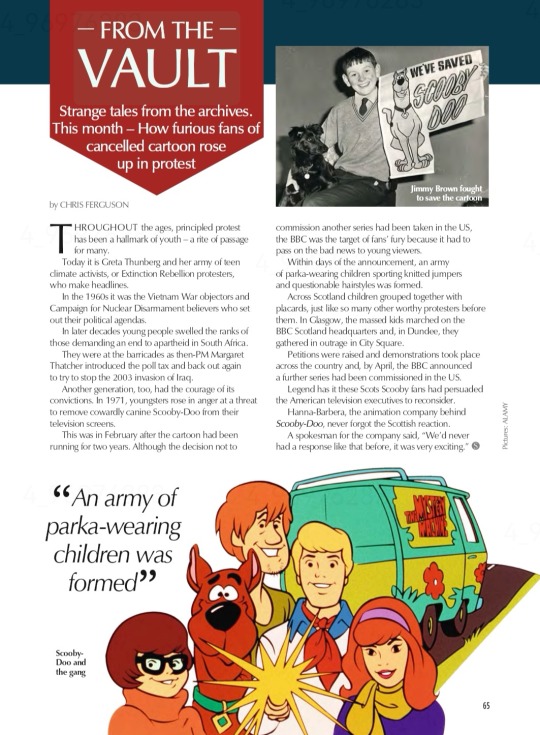
(Source: The Scots Magazine, Feb 2023) Full text below.
This actually happened. I am obsessed!
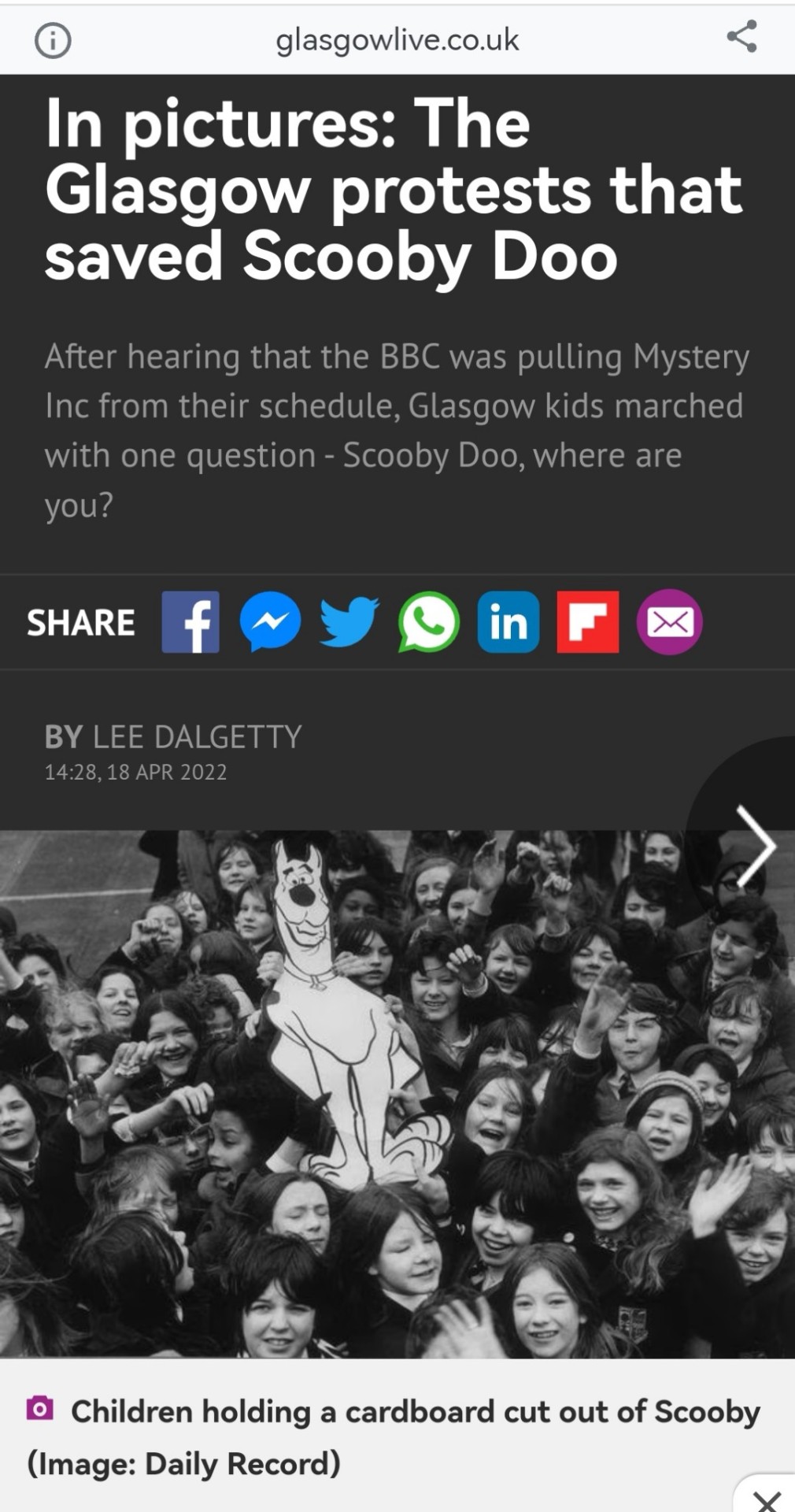
The passion! The energy!
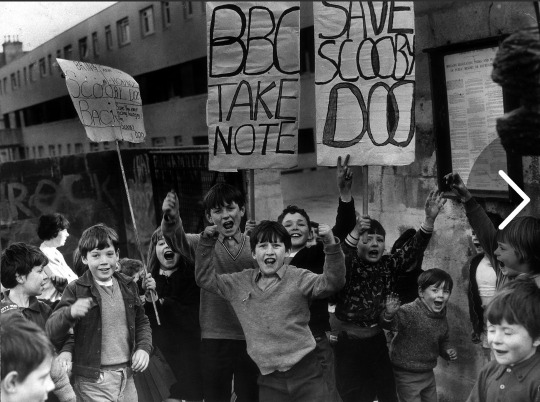
Amazing!
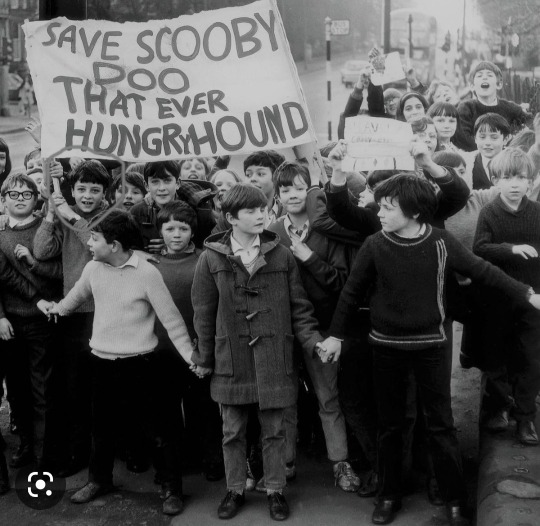
Such signage!
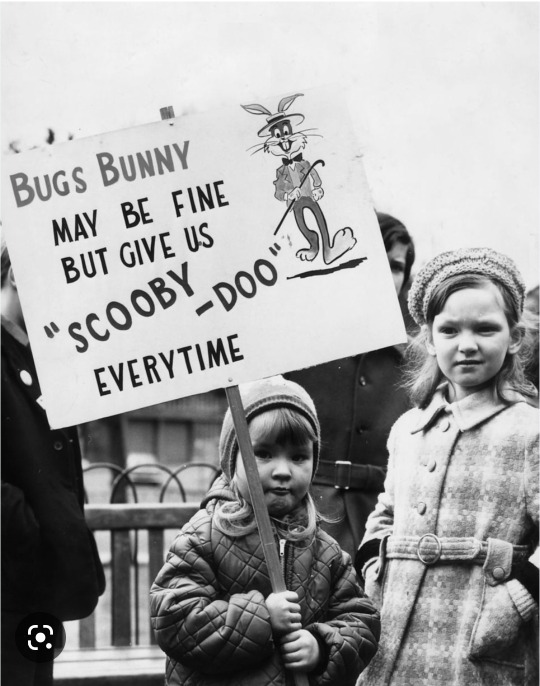
(Images: Daily Record)
A brilliant effort all round! The children of Scotland saved a pop culture powerhouse the world would be poorer without. I can't believe this. I love this so much.
Text of the article:
FROM THE VAULT
Strange tales from the archives. This month – How furious fans of cancelled cartoon rose up in protest.
By CHRIS Ferguson, Jan 12, 2023 (The Scots Magazine)
THROUGHOUT the ages, principled protest has been a hallmark of youth – a rite of passage for many. Today it is Greta Thunberg and her army of teen climate activists, or Extinction Rebellion protesters, who make headlines.
In the 1960s it was the Vietnam War objectors and Campaign for Nuclear Disarmament believers who set out their political agendas.
In later decades young people swelled the ranks of those demanding an end to apartheid in South Africa.
They were at the barricades as then-pm Margaret Thatcher introduced the poll tax and back out again to try to stop the 2003 invasion of Iraq.
Another generation, too, had the courage of its convictions. In 1971, youngsters rose in anger at a threat to remove cowardly canine Scooby-doo from their television screens.
This was in February after the cartoon had been running for two years. Although the decision not to commission another series had been taken in the US, the BBC was the target of fans’ fury because it had to pass on the bad news to young viewers.
Within days of the announcement, an army of parka-wearing children sporting knitted jumpers and questionable hairstyles was formed.
Across Scotland children grouped together with placards, just like so many other worthy protesters before them. In Glasgow, the massed kids marched on the BBC Scotland headquarters and, in Dundee, they gathered in outrage in City Square.
Petitions were raised and demonstrations took place across the country and, by April, the BBC announced a further series had been commissioned in the US.
Legend has it these Scots Scooby fans had persuaded the American television executives to reconsider.
Hanna-barbera, the animation company behind Scooby-doo, never forgot the Scottish reaction.
A spokesman for the company said, “We’d never had a response like that before, it was very exciting.”
[Beneath the main text of the article is an illustration of Scooby Doo and the gang accompanied by the pull quote: “An army of parka-wearing children was formed”
The title and byline of the article are also accompanied by a black and white photo of a boy in school uniform sitting with a little black dog in his lap, grinning and holding a sign reading "We've saved Scooby Doo" with an illustration of Scooby. The caption reads: Jimmy Brown fought to save the cartoon."]
#scooby doo#history stuff#vintage photography#history#scooby doo protests#glasgow#power to the people#I love it#awesome signage#who said fandom can't change the world?#the scooby doo fandom goes hard#fandom#fandom history#velma
993 notes
·
View notes
Note
Can you explain why they were trying to make syringes appeal to women specifically in the Victorian era? Thank you!
Morphine was absolutely the drug of choice for your Victorian lady of means. This is mostly because (like almost everything else in the Victorian era) drug/substance use was highly gendered. Drinking and smoking (both tobacco and opium) were coded very male. Men socially drank and smoked apart from the ladies, and most drinking establishments and 'opium dens' only allowed men though the door. I love using Sherlock Holmes as an example of Victorian culture, since the stories were very popular and represent a decent cross section of English society, and "The Man With the Twisted Lip" begins with Doctor Watson going to an opium den looking for the husband of one of his wife's friends.
Women were more likely to take laudanum, a mixture of alcohol and either opium or morphine mostly marketed as medicine, or to inject morphine intravenously, which is why you get these very, for want of another word, pretty 19th century syringes. Men would as well, but when they injected morphine recreationally it seems to come off as a little artsy/bohemian/eccentric/deviant. Injecting morphine intravenously is Sherlock Holmes' delivery method of choice, and that is absolutely supposed to make him seem a little strange.
Sources for further reading:
216 notes
·
View notes
Text


Fallen into the Country Humans / Balls verse and I can't get out ! Love all the history stuff I can find in this fandom !
Here's my first contribution !
#countryhumans#countryballs#germany#reich#empire#prussia#holyempire#german#drawing#digital art#sketch#love this fandom#history stuff#german history#ww2#wwii#ww2 history
44 notes
·
View notes
Text

As requested.
Shit House Boss
#WWII#history stuff#I don't actually know the origin of this photo#I'm assuming it was Australian#in Egypt for sure#I can't quite ID the plane off of memory...He 111 I think?
45 notes
·
View notes
Text

thinking about the fleischer studios stereoptical camera process, as one does
#this blew my mind as a kid i can't imagine how folks in the 1930s handled it#it's such a neat technique#animation stuff#history stuff#pop'd eye#i keep forgetting that xitter is absolutely usless and a pain to link anywhere these days
16 notes
·
View notes
Note
You mentioned wild Joseph Stalin facts and you weren’t going to share any?
Hehe yes, I love history so much. He's a very fascinating man, horrible but interesting.
He flicked orange peels and cigarette butts at his wife even with ppl over
He was ran over by a horse drawn cart twice, one of his arms is shorter than the other bc of it
His father kidnapped him once
He and his friends set an apple orchard on fire
He was severely beat as a child by his father (and later his mother but not as bad) On one occasion, his father came home drunk and threw Joseph to the ground so hard he peed blood for days.
With a catapult (I think he made it) he flung a rock at a cow's head
He terrorized a shopkeeper by igniting explosive cartridges in the shop, destroying it.
He beat one of his teachers for forcing all the school children to speak Russian instead of Gorgian, Stalin's native tongue.
Toward the end he drank heavily. He forced his men to come and stay with him every night all night and drink till they passed out or were dragged home. It was so bad the guards drained the water fountain bc they were worried one of them would push another into it and drown.
17 notes
·
View notes
Text
[“The poverty debate could do more to recognize the powerful effects of rejection on a person’s self-confidence and stamina. Applying for an apartment or job and being turned down ten, twenty, forty times—it can wear you out. Theories about neighborhood selection or joblessness often assume low-income people are more or less “rational actors” who recognize trade-offs and make clear choices. The reality is that many are “exhausted settlers” who accept poor housing in a disadvantaged neighborhood or a dead-end or illicit job after becoming depleted and disheartened from trying and trying and failing and failing. The shame of rejection not only can pressure people to accept undesirable circumstances today; it can also discourage them from striving for something better tomorrow.”]
matthew desmond, from evicted: poverty and profit in the american city, 2016
#matthew desmond#history stuff#currently reading#inseparable from the sense of foreshortened future that comes with post traumatic stress
2K notes
·
View notes
Text








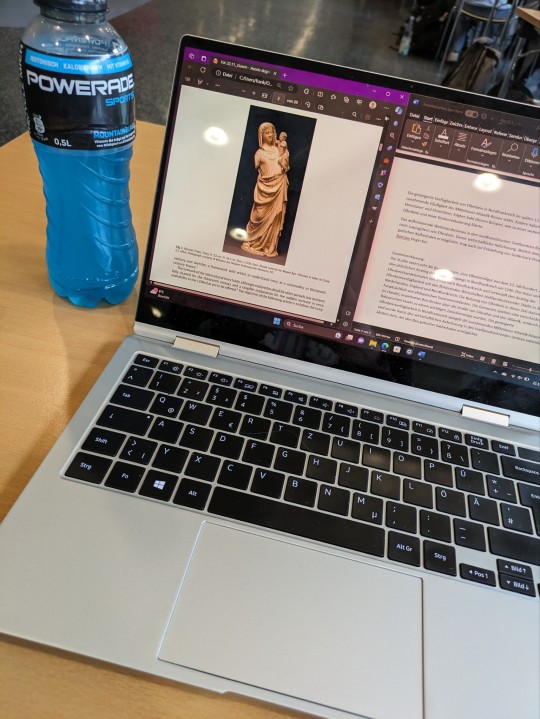

Studies and private life
- History Studies
- Amsterdam
- Tomie (Junji Ito)
#studyblr#study#study blog#studying#ambience#student life#university#german university#history#history student#ruhrgebiet#ruhr uni bochum#history studies#history stuff#amsterdam vacation#amsterdam#pokemon#pokemon x van gogh#van gogh#van gogh museum
24 notes
·
View notes
Text



Today in 1882, Thomas Edison, and his partner Edward H. Johnson created the very first string of electric lights intended for a Christmas Tree. People originally illuminated their trees with candles, which as you can guess was a dangerous practice leading to many house fires. Edison and Johnson hand-wired 80 red, white, and blue bulbs, and hung them around the Christmas tree. During this time many people mistrusted electricity, it wasn't until 1895, when President Grover Cleveland had the White House family Christmas tree illuminated by hundreds of multicolored bulbs, people started to change their minds. It is important to remember for the time being, families would have to hire a wire man which would have cost $2,000 in today's dollars. It wouldn't be until 1903 when General Electric began to sell preassembled kits of stringed Christmas lights, as a more affordable option.
#histoire#history#history in the making#history is awesome#history of science#history stuff#historyposting#today in history#history lesson#connecticut#thomas edison#christmas lights#christmas#news#history will say they were best friends#vintage#xmas#history is all you left me#history lover#history geek#fyp#history drama#history daily#history photos#history has its eyes on you#history of music#history is important#history is fun#usa#history things
135 notes
·
View notes
Text

Just screencapping this because I don't want to necessarily call out the rest of the post, it wasn't a problem, but I see this kind of sentiment semi-frequently on this website and I...
Dearest OP, I have terrible, horrible, bone-chilling news for you about the Puritans, and it gets worse.
115 notes
·
View notes
Text
For the record… the Boys’ shorts, are tinier than my bedtime shorts. Just sayin🥴

#the boys in the boat#Bobby Moch#Don Hume#Joe Rantz#history stuff#callum Turner#Jack Mulhern#Luke Slattery#these are a few of my favorite things
22 notes
·
View notes